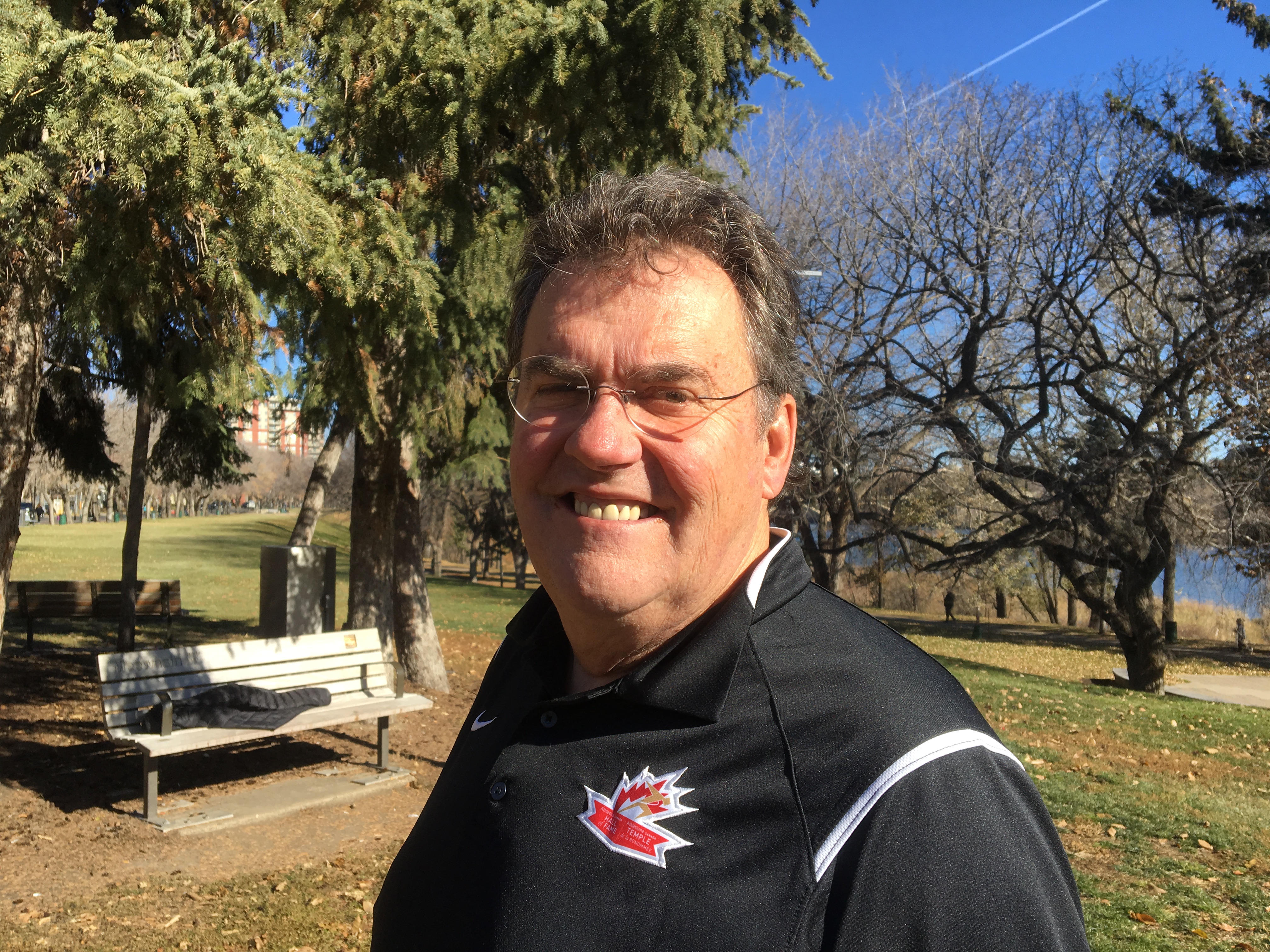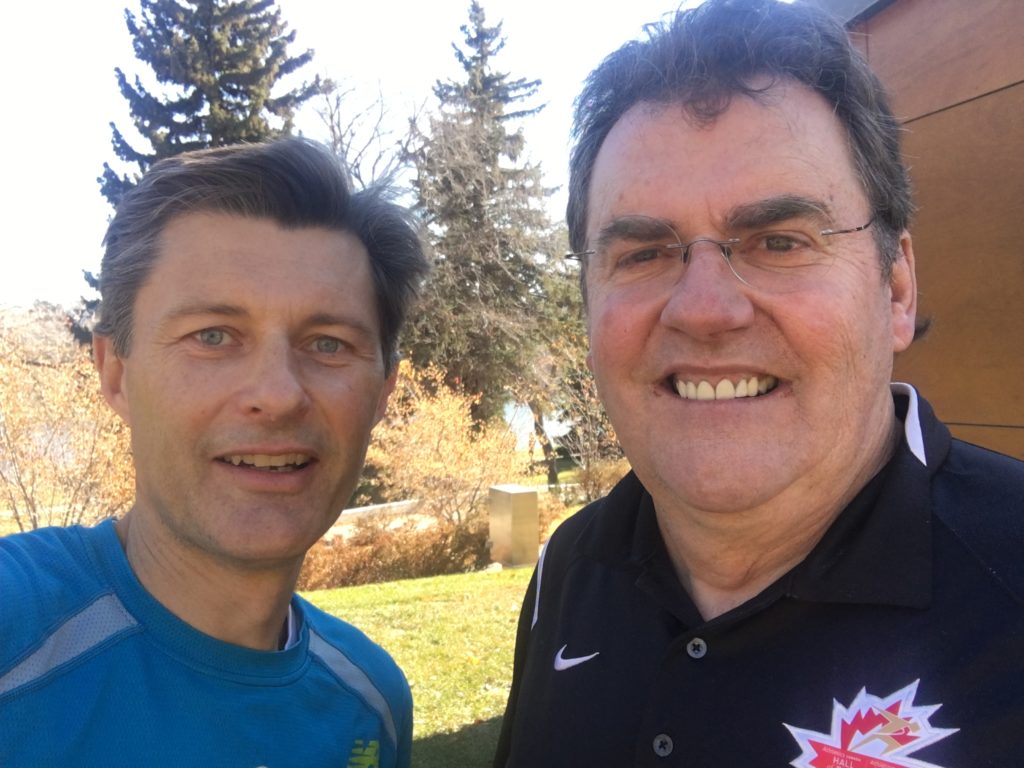Coach John Fitzgerald dies at 67
Though best known for the racewalkers he coached, Fitzgerald put Saskatchewan athletics on the map

Longtime coach John Fitzgerald, whose positive influence extended to hundreds of athletes and created athletic success and lifelong friendships, died Friday at age 67. Fitzgerald was inducted into the Athletics Canada Hall of Fame in August.
The best-known athletes Fitzgerald coached are five-time Olympian racewalker Tim Berrett, Pan Am Games silver medallist Ann Peel, and Canadian national team marathoner Jason Warick. But by all accounts, Fitzgerald impacted the lives of hundreds of kids and adults with his innovative and caring approach to coaching.
We are saddened to learn about the passing of John Fitzgerald, long time race walk coach and recent inductee into the AC Hall of Fame. Our collective thoughts and prayers are with his family. Here’s a recent story on his career: https://t.co/63Yczztp9x pic.twitter.com/0srPTpEWkM
— Athletics Canada (@AthleticsCanada) October 27, 2018
“He was an artist, first and foremost,” says Warick. “He could read every individual athlete, know what they needed, get a good workout out of anyone, in any situation… his number one priority was us as people. Performance was second. John cared about our lives and our families. We always chatted first about life before working out. We shared the joys of our kids being born, the heartache of the tragedies in our lives, on top of the emotions of the racing scene. He never cared about anyone paying him or how much money he made, whether it was working with disabled athletes, or First Nations athletes in northern Saskatchewan, he gave everything to anyone he thought he could help.”

According to a tribute in the Saskatoon StarPhoenix on the occasion of his induction into the Hall of Fame, Fitzgerald was born in Lennoxville, Que., and ran the 1,500m and swam during his school days, before deciding he preferred coaching to competing. Warick adds that Fitzgerald was also a nationally ranked marathoner and set several world records in snowshoeing.
Based in Ottawa for the first 20 years of his career, Fitzgerald moved to Saskatchewan in 1986 to coach with the province’s high performance program and the University of Saskatchewan. In the process, Fitzgerald did a great deal to improve Saskatchewan’s profile in Canadian athletics.
Warick was 14 when he met Fitzgerald. “Within a couple of years, thanks largely to him, we had arguably the best crop of distance runners in the country,” Warick says. “For the only time in Saskatchewan’s history, we were going to international competitions.”
Warick describes a coach who often improvised workouts using the most basic of resources: “Instead of speed and power training, we’d pull his kids up a toboggan hill with these special belts. Before 100-dollar kettlebells, he’d fill detergent bottles with sand. John was one of first adopters of medicine balls, step-up drills, box work, and other innovations. He was one of the first.”
Fitzgerald had met Ann Peel, a high schooler in Ottawa, before leaving the city, and she became his first internationally competitive racewalker, whom he coached from a distance for the next 20 years. In addition to her many national and international titles, Peel won the silver medal in the 10,000m at the Pan Am Games in 1987, and bronze in the 3,000m at the World Indoor Championships in 1985 and 1987.
In the 1990s, Fitzgerald became a teacher in northern Saskatchewan, continuing to coach some of his athletes from a distance, including five-time Olympian racewalker Tim Berrett. In 2000 Fitzgerald moved to Australia to coach the national racewalking team, a job he loved, but that came with a great deal of stress. In 2004 he suffered a ruptured aorta, and was forced to retire, moving his family back to Saskatchewan and continuing to coach individual athletes and volunteering for many community sports teams and clubs across the province.
Fitzgerald leaves his wife, Lorraine Martin-Fitzgerald, six sons, four grandchildren, and his five siblings. Fitzgerald’s obituary in the StarPhoenix may be read here.


